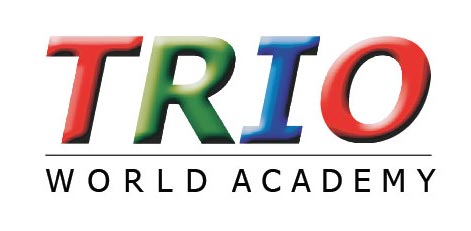Instilling life-learning in technologically equipped students
Posted on: 30/Apr/2020 10:19:01 AM

Technology is slowly becoming an integral part of modern-day education with more schools and institutes recognizing the potential of technology to deliver quality education to its students. Younger generations today enter the classroom equipped with the know-how to navigate their way through digital devices and it is only a matter of time before all schools adopt digital tools to enhance the quality of lessons delivered in the classroom.
As we progress towards a more digitally empowered and interconnected eco-system, there are rising fears that technology is stunting a child�s social skills and emotional growth. However, if the proper controls are set in place, technology has the power to drastically revolutionize the way learning takes place. Students not only enjoy learning and learn faster when they have multi-media aids, but they also have access to a wide range of ideas and solutions that is easily accessible. Students will also feel a greater sense of inclusion in their classrooms if the school is able to properly incorporate digital learning through their teachers.
Teachers will have more time to focus on behavioral development, fostering emotional control, and life skill development in students. The responsibility of a school does not stop at developing highly educated students, a school also plays a crucial role in instilling a sense of confidence, composure, and emotional intelligence in a child for him to successfully navigate through life. This requires human intelligence that technology may be able to imitate but will not be able to own for itself.
Technology can take care of the more conceptual part of learning whereas a teacher can now focus on inculcating softer skills in the minds of their students. A teacher/guide can step in to clear confusions or doubts regarding a concept that a child has not been able to grasp through digital tools. With the added structure in conducting classes and examinations that technology gives, a lot of time is left for both the students and the teachers to focus on the all-round development of the child rather than just textual learning.
However, this does not mean that technology does not have the power to instill social values and self-awareness in school children. What real-life experience cannot teach can be replaced to some extent by educational videos and exercises empowered by technology to encourage self-reflection and discussions among students and teachers on sensitive topics. Technology-based learning also gives parents a greater responsibility and role to play in their children�s education. Having developed a greater connection to family, teachers, peers, and society at large through digital devices, the child is raised in a collaborative atmosphere which thereby fuels his growth as a fully functioning member of society.
The issue of content regulation and monitoring is very relevant today as the digital world can be filled with the potentially hazardous material. However, with brilliant minds at work to develop b better systems to regulate accessible content over the internet and growing conversation around government policies to help control and sensitize content, this is an issue that can be addressed. Popular social media sites have already begun to introduce stricter content policies and security measures to discourage people from posting undesirable content. As the rate of adoption of technology in schools increases, so will regulatory bodies work towards ensuring that we are giving the future generations the right tools to mold their futures.
The government�s vision to move towards a digital India has grounded the importance of technology in our lives and the direction towards which we are headed. The rapid rate at which technological innovations take place and the plethora of devices that have entered the market is a sign of its significance in human society today. There is indeed great potential for technology to enable human-beings to develop into a more inclusive and efficient society, particularly through the younger generations. By encouraging the use of digital tools to enhance a child�s learning, schools can help create a generation of youngsters empowered by human values and the intelligence to bring harmony between the virtual and real world.







